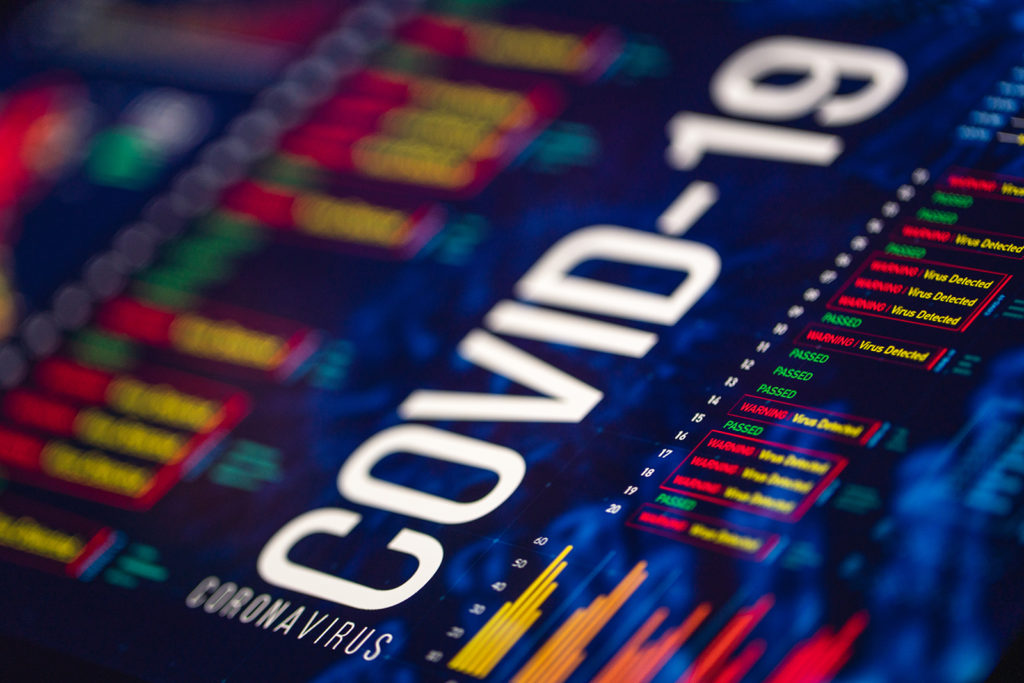
Canadians have made it through the first four weeks of social distancing and are now settling into new routines as much as possible. For many, that means turning to online resources for our business, social, entertainment, educational, and fitness needs.
In response to the COVID-19 pandemic, there is a proliferation of innovative online offerings that are enabling our businesses to continue operating, offering a sense of community, continuing education, or even just providing ways for busy parents to entertain their kids for a couple of hours. In a time of extreme isolation, the internet is bringing Canadians together and helping us to stay connected.
One thing that has not changed, however, is copyright law. Although the states of emergency declared across Canada and around the world are disrupting many things, the Copyright Act remains in force.
Developing new online services that attempt to replicate in-person interactions and transactions may trigger some unexpected copyright obligations.
The following are some examples of situations where moving online may have copyright implications.
- Online education
Copyright subsists in all textbooks, worksheets, music, and educational videos that a teacher might reproduce as part of an online lesson. (It is important to note that copyright subsists in a work until the end of the calendar year 50 years after the death of the author but this is likely to be the case for most educational materials.) Reproducing any of these works might infringe copyright of an author, publisher, artist, film studio, or even another educator that has prepared teaching materials.
The Copyright Act does, however, protect the rights of the public to use copyrighted works for specific purposes without permission from or compensation to the owner in specific situations. These rights are generally known as “users’ rights” or “fair dealing” in Canada and three of the recognized exceptions are directly relevant to online education: research, education, and private study. These exceptions may apply to some online education but the fair dealing analysis takes many factors into account and each analysis is fact specific. Be sure to get qualified advice regarding copyright obligations before reproducing copyrighted works in an online lesson.
- Online fitness classes
One of the activities keeping many sane right now is participating in online fitness classes. There has been an explosion in the number of gyms, yoga studios, dance studios, etc. offering online classes—and many of them involve music.
Fitness instructors and studios that use music in their in-person classes generally pay through various tariffs that apply to music used to accompany fitness activities. These royalty payments are managed through a series of organizations that collect and manage royalty payments on behalf of composers, performers, and record companies.
Communicating music to the public via the Internet can trigger different royalty payments specific to the use of music online. The tariff applicable and the amount of these royalties may differ depending on the platform, whether the class is live streamed or offered on-demand, and whether these are offered directly to an individual or to the public.
- Online music classes
Online music classes could also require royalty payments where they communicate music that was written and/or performed by someone else.
Communicating the song itself (i.e. the words and melody) is one set of rights and is separate from reproducing the recorded performance of that song (i.e. a recording of an artists’ performance) although some uses trigger both. Even when performing someone else’s song yourself, this can trigger copyright obligations and royalty payments under one or more tariffs.
The users’ rights of research, education, and private study noted in the case of online education may also apply to online music classes. Online music classes take many forms and it is important to seek advice before relying on this exception.
- Online musical and theatrical performances
Online musical and theatrical performances can also trigger copyright obligations. Consider again whether you have permission to reproduce the music or performance and whether the performance is offered through live stream and on-demand.
When music is performed live, the original author is compensated for the public performance of their work by royalties paid via one or more tariffs related to live performance of music. Again, when this “live” performance moves online, a different tariff might apply. As with music used in online fitness classes, the tariff applicable and the amount of these royalties may differ depending on the platform and whether the performance is live streamed or offered on-demand.
- Online museums, art galleries, and libraries
Finally, many museums, art galleries, and libraries that have had to close during the pandemic are offering tours and other educational activities online. All of these institutions are full of works that are subject to copyright protection. Paintings, sculptures, manuscripts, letters, photos, music, videos, and even costumes can all be subject to copyright and you may need permission to reproduce them in video form. This means that some works in the possession of these institutions will no longer by subject to copyright protection but many of them will be.
For those works in which copyright still subsists, there are users’ rights in the Copyright Act that are specific to libraries, archives, and museums but these rights are directed at ensuring preservation, for example allowing these institutions to make copies of rare or deteriorating works in certain circumstances, or at research and private study, for example allowing these institutions to make a single copy of a newspaper or periodical on behalf of an individual who would have a users’ right to make this copy herself. Certain conditions apply to such uses by libraries, archives, and museums. The broader users’ rights and fair dealing regime would also apply to these institutions, which may be able to rely on these rights in some cases.
Outside of these particular uses, the general copyright regime applies and works can only be reproduced with the proper permissions.
As regards art galleries, as well as libraries, archives, and museums operating outside of the specific exceptions outlined in the Act, their ability to reproduce an artistic work in which copyright subsists will depend on underlying licence and assignment agreements that are specific to each artistic work. The gallery, library, or museum’s right to exhibit the work stems from the terms of the purchase, donation, or loan of a particular artistic work to that institution.
The copyright in the artistic work, be it a painting, photograph, or sculpture, is independent from possession of the physical object and so the right to exhibit the work is also separate from the right to reproduce it in digital form. The owner of the copyright in the work, the owner of the physical fixation of the work, and the institution with the right to exhibit the work could all be different people and any combination of these different rights is possible. It is vital to consider the relevant agreement before reproducing an artistic work in which copyright subsists online.
Before launching any of these online activities, consider again whether you have permission to use a copyrighted work that might be involved. Users’ rights may also apply to some of these activities but there is no blanket rule that applies to all situations and it is important to get qualified legal advice on the specific facts of the use that you would like to make of a work before relying on any of these exceptions.
It is also important to note that other countries have their own royalty payment regimes. Several countries, and the United States in particular, also have users’ rights regimes that have some similarity to Canada’s but with important distinctions. It is important to get qualified legal advice in the relevant jurisdiction(s) if your online offering might be used in other countries.
Finally, remember that what you produce may itself attract copyright protection.
Where you create an original work, whether it be a musical performance, dance choreography, or reading of a children’s book, the fixation (i.e. recording) of your performance may itself be a new work that is protected by copyright. Think about how you might want to control the distribution of your new project and whether you might want or need to license it to others to use as well—either for compensation or not.
If you want to make it broadly available to as many as possible, but retain some control, consider a “creative commons” license that will allow others to use your work without needing your permission, as long as they use it within certain parameters. For example, they might be able to use it for non-commercial purposes only, not be able to make any changes to it, or have to attribute the work to you as the author.
As we settle into this new socially distant world, some things remain the same even while our interactions with them are changing. But also take some time to think about what our world will look like when we come through the other side of this. Some of these online activities will revert to their previous formats but others are likely to continue to develop online. It’s worth taking some time now to consider both any copyright obligations that you may have and what you want your project to look like in the long term.
| Learn more about our copyright practice. |
Jay Kerr-Wilson is the co-leader of the Technology, Media and Telecommunications group and practices primarily in the areas of communications and public law, with a particular emphasis on copyright.

